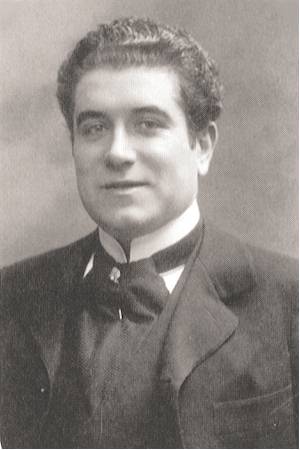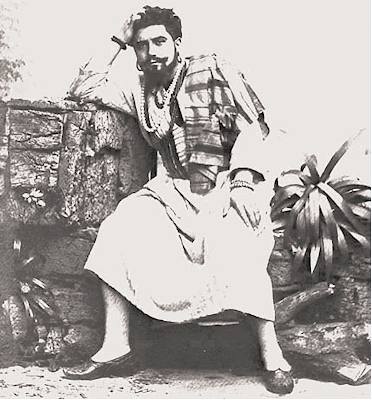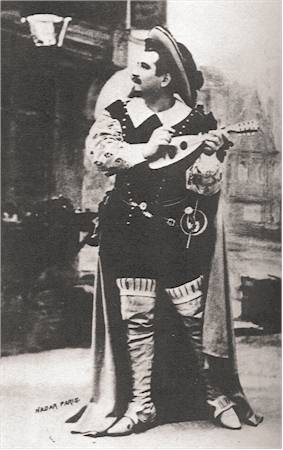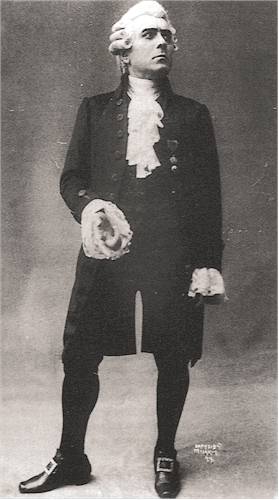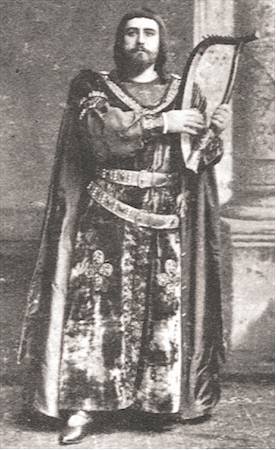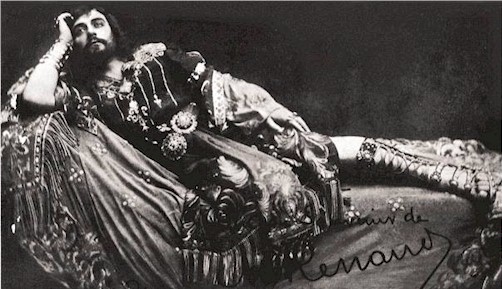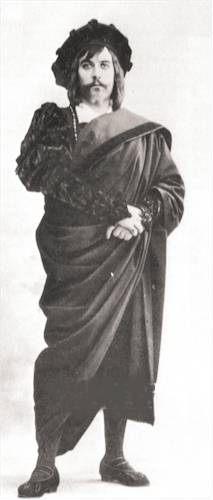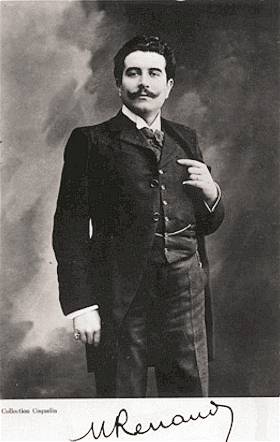French baritone, 1861 - 1933
Biographical notes: He was born Maurice Arnold Croneau in Bordeaux. The year of his birth varies in different
sources ranging from 1860 - 1862. He studied at the Paris Conservatoire, but soon changed to the Brussels Conservatory where he studied with Dupont and Gevaert. His debut took place at the
Théâtre Royal de la Monnaie in 1883, where he remained its leading baritone until 1890. He appeared successfully in the premieres of Reyer’s Sigurd (1884) and Salammbô (1890). The same
year he joined the Opéra Comique in Paris, his first appearance on stage was as Karnac in Lalo’s Le Roi d’Ys. The following year he became a member of the Paris Opéra, where he made his debut
as Nelusko in Meyerbeer’s L’Africaine. At the Paris Opéra, he was the leading baritone until 1902, succeeding in Wagner roles (Beckmesser, Wolfram and Telramund), as Don Giovanni and in
many roles of familiar and unfamiliar French operas. He continued to perform as a guest artist at the Opéra until 1914. Maurice Renaud first toured the United States in 1893, appearing in New
Orleans, Chicago and Boston. His debut at Covent Garden was as Wolfram in Tannhäuser opposite Emma Eames and Ernest van Dyck. Further performances included Meyerbeer’s Les Huguenots,
Don Giovanni (a role he was entirely suited for) and many others. He sang with the leading artists and was considered as one of the most versatile singing actors of his day. Some names of his
partners: Pol Plançon, Emma Eames, Lilli Lehmann, Lillian Nordica
, Emmy Destinn, Mary Garden, Nellie Melba, Selma Kurz, Enrico Caruso and Marcel Journet. Renaud travelled extensively, making guest appearances in St. Petersburg, Berlin and Monte Carlo. At La Scala, he sang more
than once under Arturo Toscanini. The Manager of the Metropolitan Opera House had signed a contract with Renaud, but various international conflicts prevented the singer from making his
debut there, later his contract was voided. It was not until 1906 when Oscar Hammerstein signed him for the new Manhattan Opera House. He enjoyed enormous success opposite Nelly Melba and
Mary Garden. One of his greatest achievements was Athanaël in Massenet’s Thaïs, appearing opposite Mary Garden in 1906. Other roles were Scarpia, Don Giovanni, the three villains in
Offenbach’s Les Contes d’Hoffmann, Germont-père, and above all, Hérode in Massenet’s Hérodiade. Mary Garden described Renaud as “one of the greatest artists in the world.” It was
not until 1910 that he finally joined the Metropolitan Opera, making his debut as Rigoletto with Nelly Melba, Florencio Constatino and Adamo Didur. During World War I, he gave concerts for
the allied troops and was wounded at the front. His wounds left him an invalid. After the War Maurice Renaud was awarded the Legion of Honor by the French government. In 1919 he retired
from the stage appearing for the last time in a silent film in 1920.
As Zurga in Bizet’s “Les Pêcheurs de Perles” “Maurice Renaud inherited the mantle of French baritones such as Jean Lassalle and Victor Maurel as a singing actor who achieved international renown.” Harold Bruder, 1997
As Figaro in “Il Barbiere di Siviglia”
As Scarpia
As Wolfram in “Tannhäuser”
Maurice Renaud in two of his greatest roles
As Hérode in Massenet’s “Hérodiade”
In the title role of Thomas’ “Hamlet” Comment:
Maurice Renaud made more than fifty discs for Pathé and Gramophone from 1901 to 1908 (many of them are duplicates). He recorded only sixteen arias and five songs (with one exception all in
French), unfortunately there are no duet-/ensemble recordings. Nevertheless, his recordings belong to the most valuable baritone documents we have.
His was a evenly produced baritone voice of extraordinary resonance. He loved to sing with expressive “rubato.” Particularly in Vision fugitive or in Don Giovanni’s aria (!) you will hear the
tendency of stretchening the vocal line. I agree with Harold Bruder, who said “that the tempo creates space within which Renaud modulates the vocal line to intensify the mood.” It may be true
that his use of “messa di voce” is not as pronounced as of other singers of his time. But Renaud’s art is without doubt very imaginative and vividly communicated through his recordings. His ability
to create a realistic portrayal of a character, with voice alone, is amazing. Listen to him in two of his finest recordings.
|
|||||||||||||||||||||||||||||
